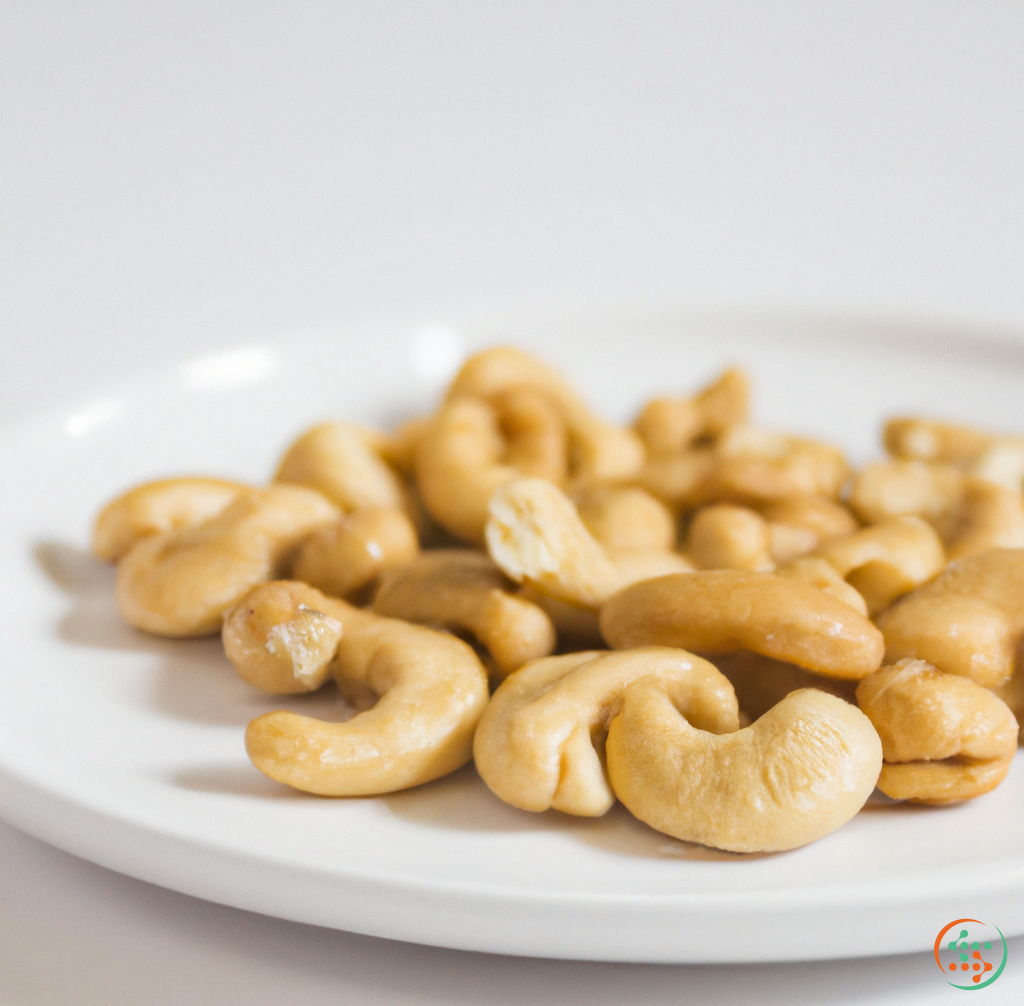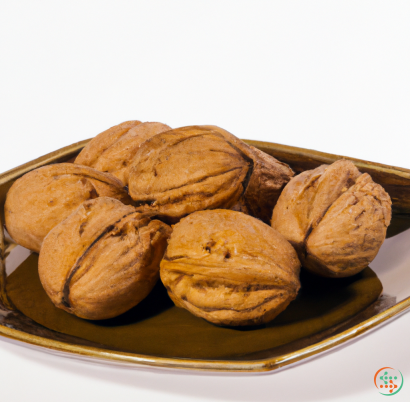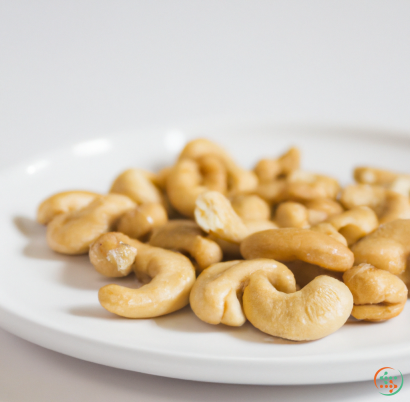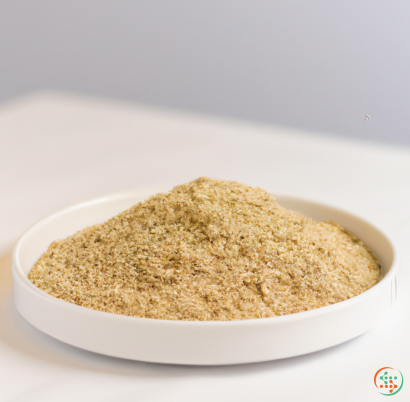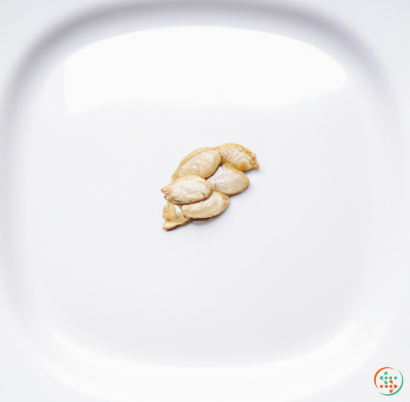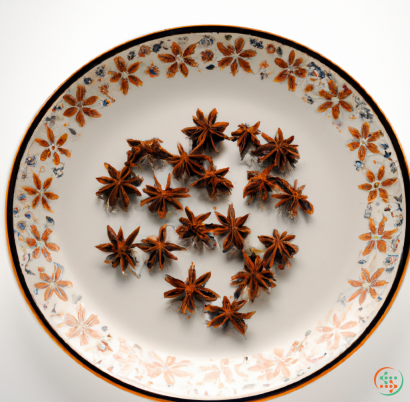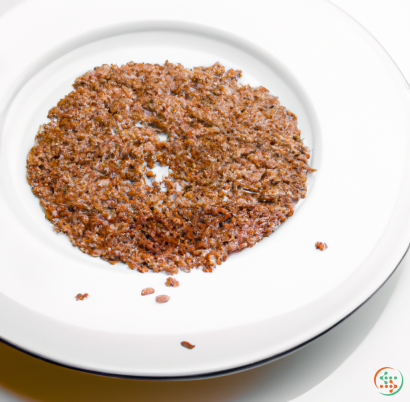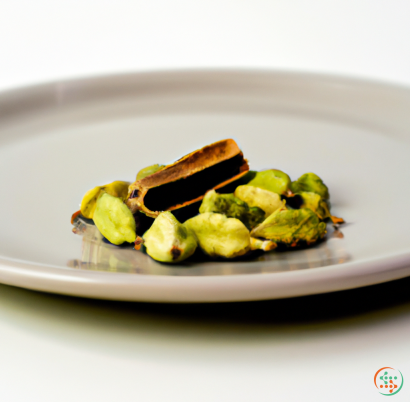Cashew Nuts
A cashew nut is a small, kidney-shaped seed that grows at the end of the cashew apple, the fruit of the cashew tree. The tree is native to Brazil, but cashew nuts are now grown in many tropical countries.
Cashew nuts are a good source of protein, essential minerals and vitamins. They are also relatively low in fat, making them a healthy snack option.
Cashews can be eaten raw, roasted or salted. They are often used in cooking, as they have a sweet, buttery flavour.
Cashews are a popular ingredient in many Asian and Indian dishes. They are often used in curries, stir-fries and desserts.
So, what exactly is a cashew nut? Read on to find out everything you need to know about this delicious little seed!
The cashew tree is native to Brazil, but the nuts are now grown in many tropical countries
Cashew nuts are a good source of protein, essential minerals and vitamins
Cashews can be eaten raw, roasted or salted
Cashews are often used in cooking, as they have a sweet, buttery flavour
What are Cashew Nuts?
Cashew nuts are the seeds of the cashew tree, which is native to Brazil. The tree grows to a height of around 20-30 metres, and the nuts are found at the end of the tree’s fruit, known as the cashew apple.
The cashew apple is actually not a true apple, but rather a false fruit, as the actual fruit of the cashew tree is the cashew nut.
The cashew nut is encased in a hard, green shell, which is sometimes referred to as the “cashew nut shell”. This shell contains a resin known as urushiol, which can cause skin irritation in some people.
The cashew nut itself is shape, similar to a kidney bean. It is cream-coloured with a brownish-red skin.
Cashew nuts are a good source of protein, essential minerals and vitamins. They are also relatively low in fat, making them a healthy snack option.
Cashews can be eaten raw, roasted or salted. They are often used in cooking, as they have a sweet, buttery flavour.
Cashews are a popular ingredient in many Asian and Indian dishes. They are often used in curries, stir-fries and desserts.
How to Eat Cashew Nuts
Cashew nuts can be eaten in a number of different ways.
Raw cashews can be eaten as a snack, or used in salads and other dishes.
Roasted cashews have a deeper flavour, and are often used in cooking.
Salted cashews are a popular snack food, and can be used in cooking to add a salty flavour.
Cashews can also be ground into a flour, which can be used in baking or to make sauces and other dishes.
Cashew Nut Nutrition
Cashews are a good source of protein, essential minerals and vitamins. They are also relatively low in fat, making them a healthy snack option.
One ounce (28 grams) of cashews provides the following nutrients:
Calories: 157
Protein: 5 grams
Fat: 12 grams
Carbohydrates: 9 grams
Fiber: 1 gram
Vitamin K: 18% of the Daily Value (DV)
Manganese: 20% of the DV
Copper: 16% of the DV
Magnesium: 8% of the DV
Iron: 7% of the DV
Zinc: 5% of the DV
Cashews are also a good source of vitamin E, phosphorus, potassium and B vitamins.
Health Benefits of Cashews
Cashews are a good source of essential nutrients, and have a number of health benefits.
Cashews are a good source of protein, which is essential for building and repairing tissues. They are also a good source of healthy fats, minerals and vitamins.
Cashews are low in fat, and most of the fat is unsaturated. This type of fat can help to lower cholesterol levels and reduce the risk of heart disease.
Cashews are also a good source of antioxidants, which can help to protect cells from damage.
Cashews have been shown to improve blood sugar control in people with diabetes, and may also help to reduce the risk of developing diabetes.
Cashews may also help to protect against some types of cancer, such as colon cancer.
Cashews are a good source of magnesium, which is essential for bone health. Magnesium can also help to reduce the risk of migraines and heart disease.
Cashews are also a good source of copper, which is essential for the formation of red blood cells. Copper can also help to reduce the risk of arthritis and cardiovascular disease.
Possible Health Risks of Cashews
Cashews contain urushiol, a resin that can cause skin irritation in some people. This resin is also found in poison ivy and poison oak, and can cause an allergic reaction in people who are sensitive to it.
If you are allergic to poison ivy or poison oak, you should avoid contact with cashew nuts and cashew shells.
Cashews also contain oxalates, which can bind with calcium and other minerals in the body and form kidney stones. If you have a history of kidney stones, you should limit your intake of cashews.
How to Select and Store Cashews
Cashews are available in a variety of forms, including whole, shelled, roasted and salted.
When selecting cashews, look for nuts that are uniform in size and shape. Avoid nuts that are broken, mouldy or discoloured.
Store cashews in a cool, dry place, such as the pantry. Shelled nuts will keep for up to six months, while whole nuts will keep for up to a year.
If you need to store cashews for longer than this, they can be stored in the refrigerator or freezer.
How to Use Cashews in Cooking
Cashews can be used in a variety of sweet and savoury dishes.
They can be used whole, or ground into a flour or paste.
Cashews can be used in curries, stir-f
Cashew nuts are a popular snack food and a great form of nutrition for people of many cultures around the world. To get from their origins in the tropical forests of Central and South America to the dinner plate of someone living in Europe or the US, the process is surprisingly complex. In this blog post, we’ll explore how a cashew nut winds its way from a flowering cashew tree to that same dinner plate in detail.
Planting and Cultivation
The production of cashews begins with the planting of a cashew tree, which is done in many different parts of the world. Cashew trees often come from saplings grown in nurseries, where growers select the strongest seedlings and nurture them in fertile soil, with plenty of sun, water and pesticide-free fertilizer.
Once planted in the ground, it can take around two and a half to three years for a cashew tree to reach maturity and bear fruit. A single cashew tree will produce anywhere from 25 to 50 pounds of fruited cashew nuts per year. While it can be harvested by hand, most cashews are removed using mechanical harvesters, which range from fully automated machines riding up and down the rows of trees to rakes used to gather the fallen cashews from the ground.
Pre-Processing
After being plucked from the cashew tree, the nuts must be pre-processed before they can be consumed or stored for later. Prevents of pre-processing include separating the nut from the popularized shell, cleaning the nut, sorting, grading and packaging the nuts. Cashews are sorted by size, shape and quality before being put into airtight containers and quickly transported to a processing plant.
At the processing plant, the nuts are inspected for damage and impurities. The non-usable nuts are removed and the quality control process thus results in higher quality nuts. If the nuts are still attached to their shell, they must be hulled and shelled, which involves a delicate procedure that requires the nuts to be carefully boiled, dried and husked in order to protect the valuable kernel inside the shell.
Roasting
Once the shells and hulls have been removed, the cashews can then be roasted. This is done to bring out the flavor of the nuts and to make them easier to eat. Roasting typically involves a variety of automatic roasting machines which can be programmed to evenly and accurately roast the cashews. The nuts are then cooled down, meaning that their temperature and moisture levels can be correctly adjusted for optimal storage and longevity.
Packaging
Once roasted, the cashews are then packaged for distribution and sale. Cashews are often sold in sealed bags, containers or tins, depending on the intended use and consumer preferences. The nuts are sorted, graded and packaged using specialized packaging equipment. This helps ensure that the nuts are properly protected during transit and that their shelf life is maximized.
Distribution and Transport
While cashews have an extended shelf life, the nuts must be moved quickly between producers and sellers, both domestically and globally. There are a variety of transportation methods available for the transport of cashews, including freight trucks, cargo ships, railroads and even airplanes. Depending on the distance and urgency, the cashews can be transported via land, sea or air.
Sales and Consumer Purchasing
Cashews are sold fresh or roasted, salted or unsalted and with or without any additional ingredients, such as honey, other nuts, fruits or spices. Regardless of the form in which the nuts are sold, processors and retailers ensure healthy, safe and nutritious products for their customers.
Once purchased, consumers can enjoy the nuts right away or store them in an airtight container in a cool, dry place. Stored cashews can last between six and twelve months.
Final Product
Finally, after several months of cultivation, harvesting, pre-processing, roasting, packaging, distribution and transport, cashews are ready to be eaten. These small seedlike fruits have a variety of uses, and can be a great addition to salads, curries, stir-fries, pies and more. They also provide a good source of iron, zinc and several important vitamins.
Conclusion
As demonstrated in this blog post, the process cashews take to get from a cashew tree to a dinner plate is complex but necessary. This process ensures that cashews provide us with quality nutrition, delicious flavor and a vast array of uses both in the kitchen and for snacking on the go.
| Vitamin E | 0.9 mg | |
| Vitamin K | 0.0341 mg | |
| Vitamin C | 0.5 mg | |
| Vitamin B1 | 0.42 mg | |
| Vitamin B2 | 0.06 mg | |
| Vitamin B3 | 0.00106 grams | |
| Vitamin B5 | 0.86 mg | |
| Vitamin B6 | 0.42 mg | |
| Vitamin B9 | 0.025 mg |
| Calcium | 0.037 grams |
Daily Value 1.3 g
|
| Iron | 0.00668 grams |
Daily Value 0.018 g
|
| Magnesium | 0.292 grams |
Daily Value 0.4 g
|
| Phosphorus | 0.593 grams |
Daily Value 1.25 g
|
| Potassium | 0.66 grams |
Daily Value 4.7 g
|
| Sodium | 0.012 grams |
Daily Value 2.3 g
|
| Zinc | 0.00578 grams |
Daily Value 0.011 g
|
| Copper | 0.0022 grams |
Daily Value 0.9 mg
|
| Manganese | 0.00166 grams |
Daily Value 0.0023 g
|
| Selenium | 0.0199 mg |
Daily Value 0.055 mg
|
| Tryptophan | 0.287 grams | |
| Threonine | 0.688 grams | |
| Isoleucine | 0.789 grams | |
| Leucine | 1.472 grams | |
| Lysine | 0.928 grams | |
| Methionine | 0.362 grams | |
| Cystine | 0.393 grams | |
| Phenylalanine | 0.951 grams | |
| Tyrosine | 0.508 grams | |
| Valine | 1.094 grams | |
| Arginine | 2.123 grams | |
| Histidine | 0.456 grams | |
| Alanine | 0.837 grams | |
| Aspartic Acid | 1.795 grams | |
| Glutamic Acid | 4.506 grams | |
| Glycine | 0.937 grams | |
| Proline | 0.812 grams | |
| Serine | 1.079 grams |
| Glucose | 0.05 grams |
|
| Fructose | 0.05 grams |
|
| Sucrose | 5.81 grams |
|
| Total Sugars | 0.131141 grams |
per 100g
|
| Caprylic acid (8:0) | 0.02 grams |
|
| Capric acid (10:0) | 0.02 grams |
|
| Lauric acid (12:0) | 0.02 grams |
|
| Myristic acid (14:0) | 0.02 grams |
|
| Palmitic acid (16:0) | 3.92 grams |
|
| Stearic acid (18:0) | 3.22 grams |
|
| Arachidic acid (20:0) | 0.27 grams |
|
| Behenic acid (22:0) | 0.17 grams |
|
| Lignoceric acid (24:0) | 0.1 grams |
|
| Total Saturated fatty acids: | 7.76 g | |
| Oleic acid (18:1) | 23.52 grams |
|
| Palmitoleic acid (16:1) | 0.14 grams |
|
| Gadoleic acid (20:1) | 0.14 grams |
|
| Total Monounsaturated fatty acids: | 23.8 g | |
| Linolenic acid (18:3) | 0.06 grams |
|
| Linoleic acid (18:2) | 7.78 grams |
|
| Total Polyunsaturated fatty acids: | 7.84 g | |
| Campesterol | 0.01 grams |
|
| Beta-sitosterol | 0.11 grams |
|
| Total Sterols: | 0.12 g | |
